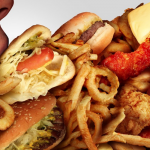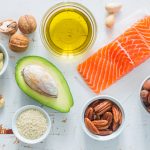Feelings > Health? The toxic side of body positivity
Today, obesity is one of the leading cause of premature death. Around 70% of the worlds population is overweight or obese.
Vegetables- the more the better?
When it comes to food, there are some cases when too much of a “good” thing can become a “bad” thing.
A generation that’s dying to eat “healthy”
Healthy breakfast, healthy meals, healthy snacks, healthy everything. What is healthy even mean? Is low carb healthy? Is low fat healthy? Is gluten free or vegan healthy? Let’s face it. In the world of nutrition, the term “healthy” kind of lost it’s true meaning and value in the last decade or so. But everybody wants to eat healthy. Healthy is trendy.
Weightloss is not linear and it is completely normal
Weight-loss isn’t linear, it is not consistent and regular, which can be frustrating and de-motivating when your are on a weightloss journey. Good weeks followed by bad weeks, unexplainable ups and downs…
How much should I weigh? What is the “normal” body weight?
“Ideal” body weight is often based on what we see promoted through media and social media. However, bodyweight does not always related to how a person looks at a certain weight.
Nutritionist vs. dietitian
In this article, we dispel the fog of the difference between the “nutritionist” and the “dietitian” professions.
Fats- friends or enemies?
In this post, we are about to talk through one of the most commonly misunderstood nutrients: dietary fats.
Protein question
There are three main macronutrients that build up a healthy meal: proteins, carbohydrates and fats. All of them are equally important for the adequate function of human body, but without a doubt, most myths revolve around proteins.
Carb talk
Good carbs, bad carbs. Where did this come from?! Carbohydrates are the body’s primary energy source, and are a crucial part of a well-balanced diet.
Macro counting or meal plan
Macro counting or meal plan based coaching. What do they mean and which one is better? I get this question so often, so let’s get it!










